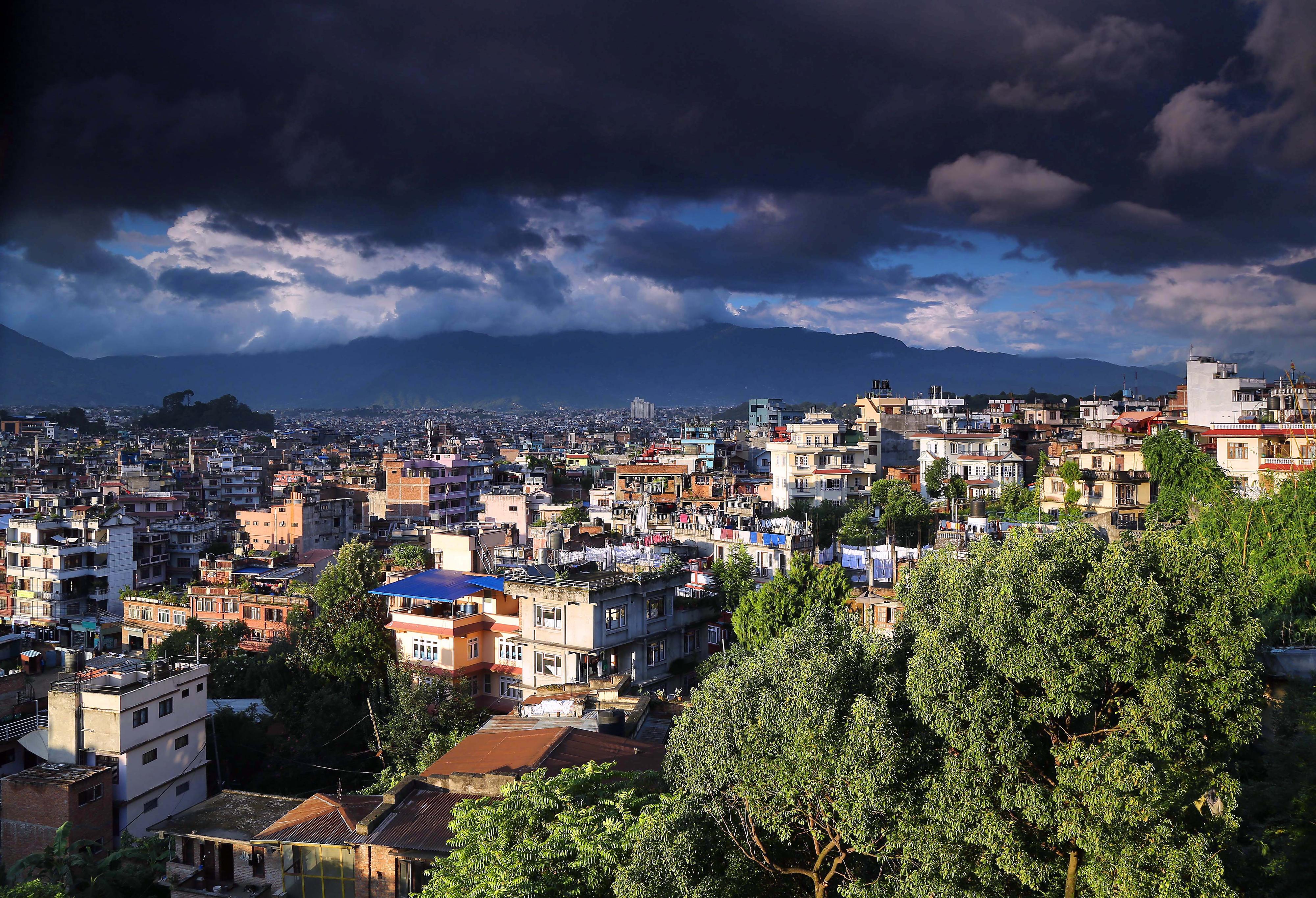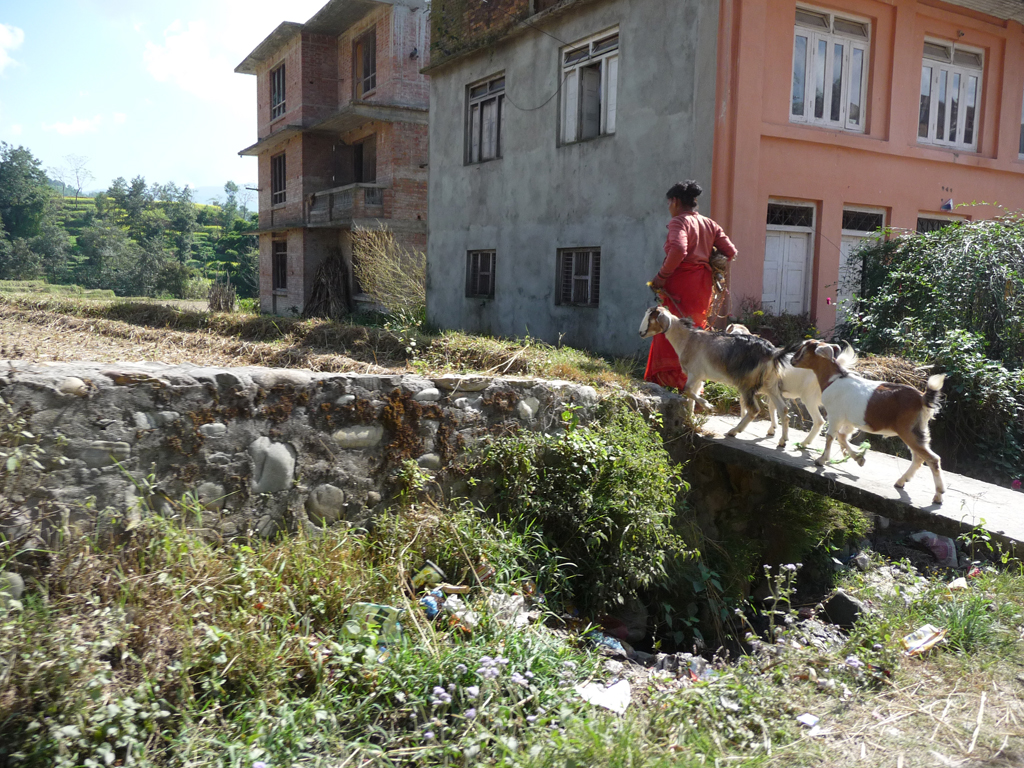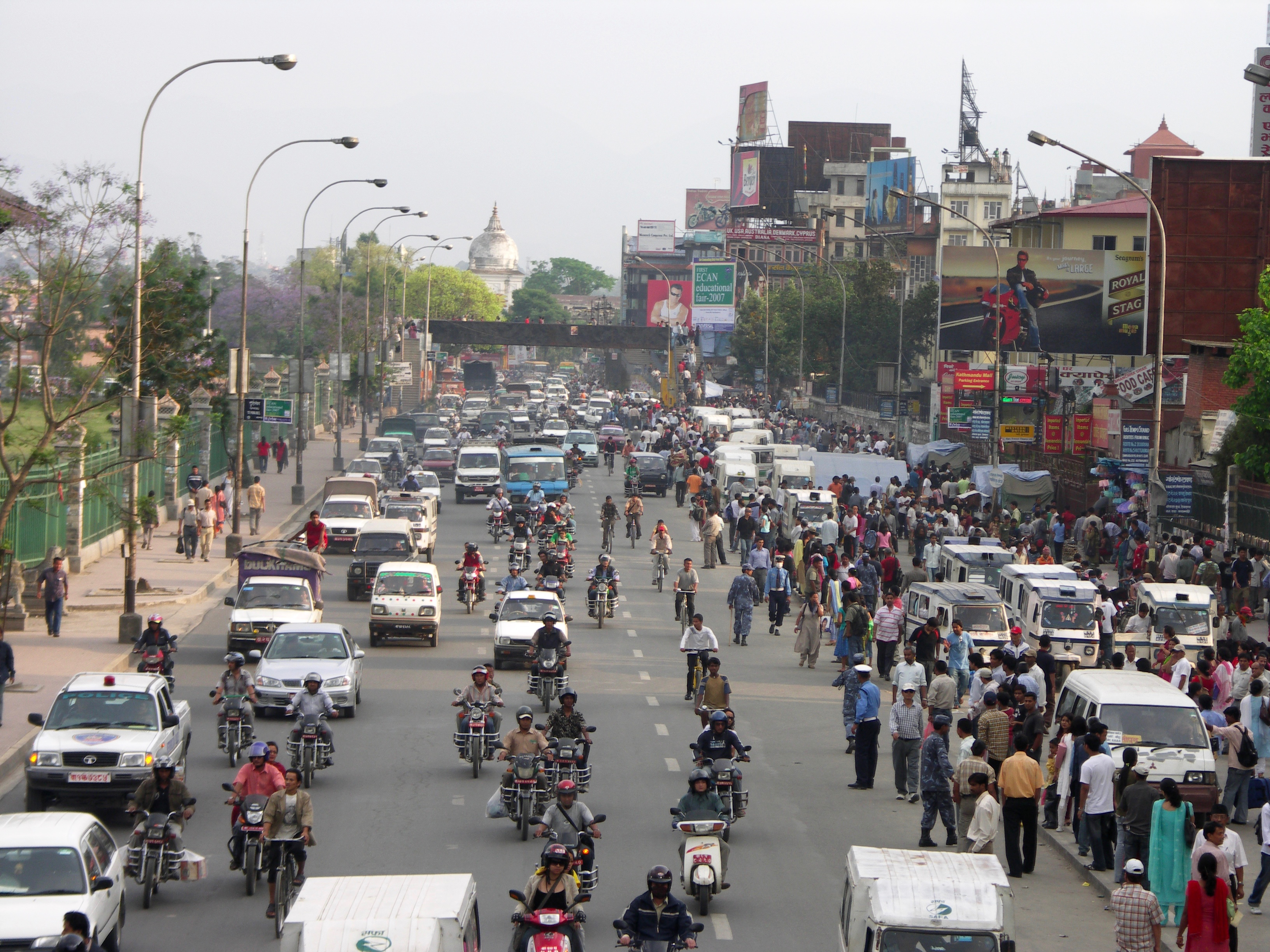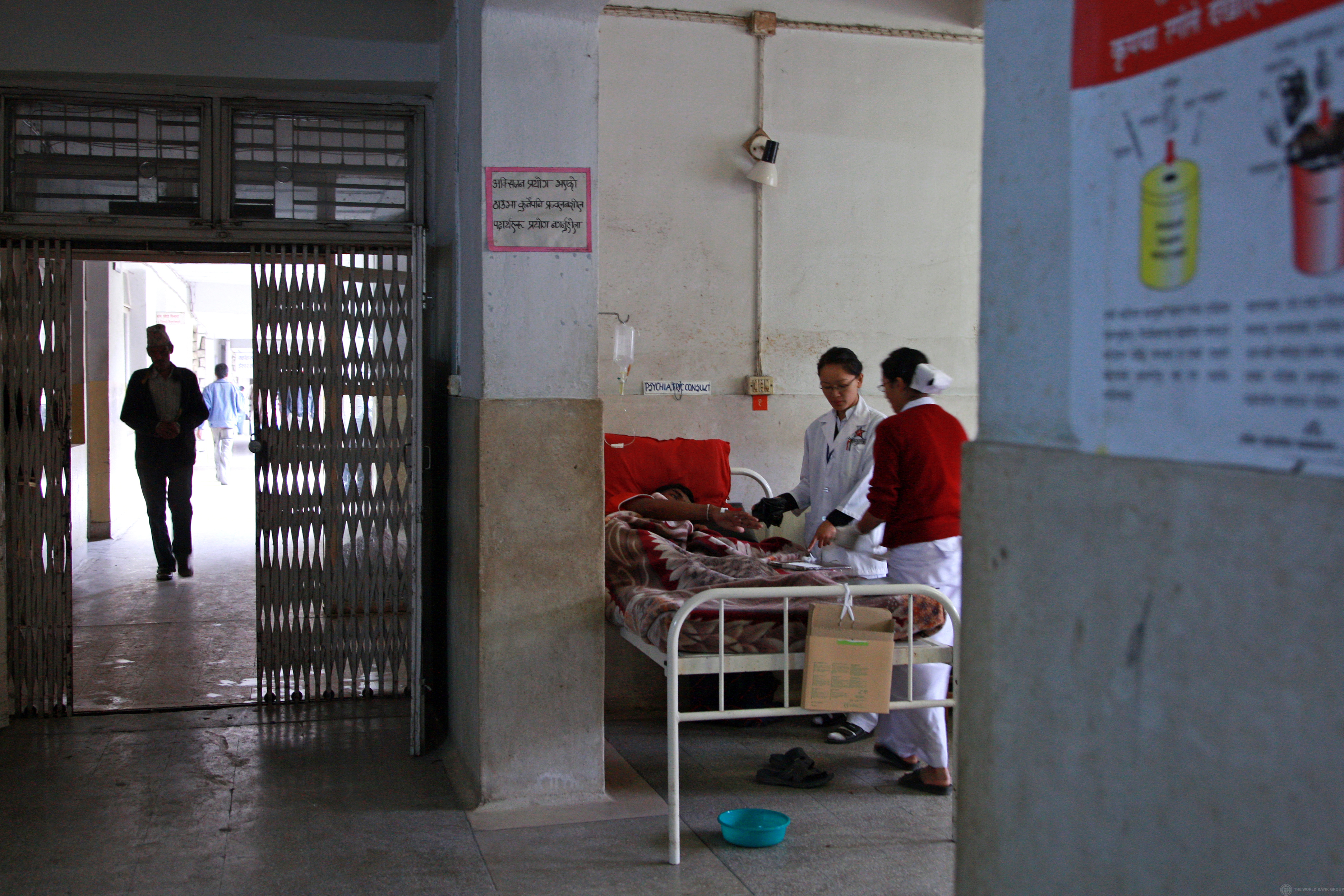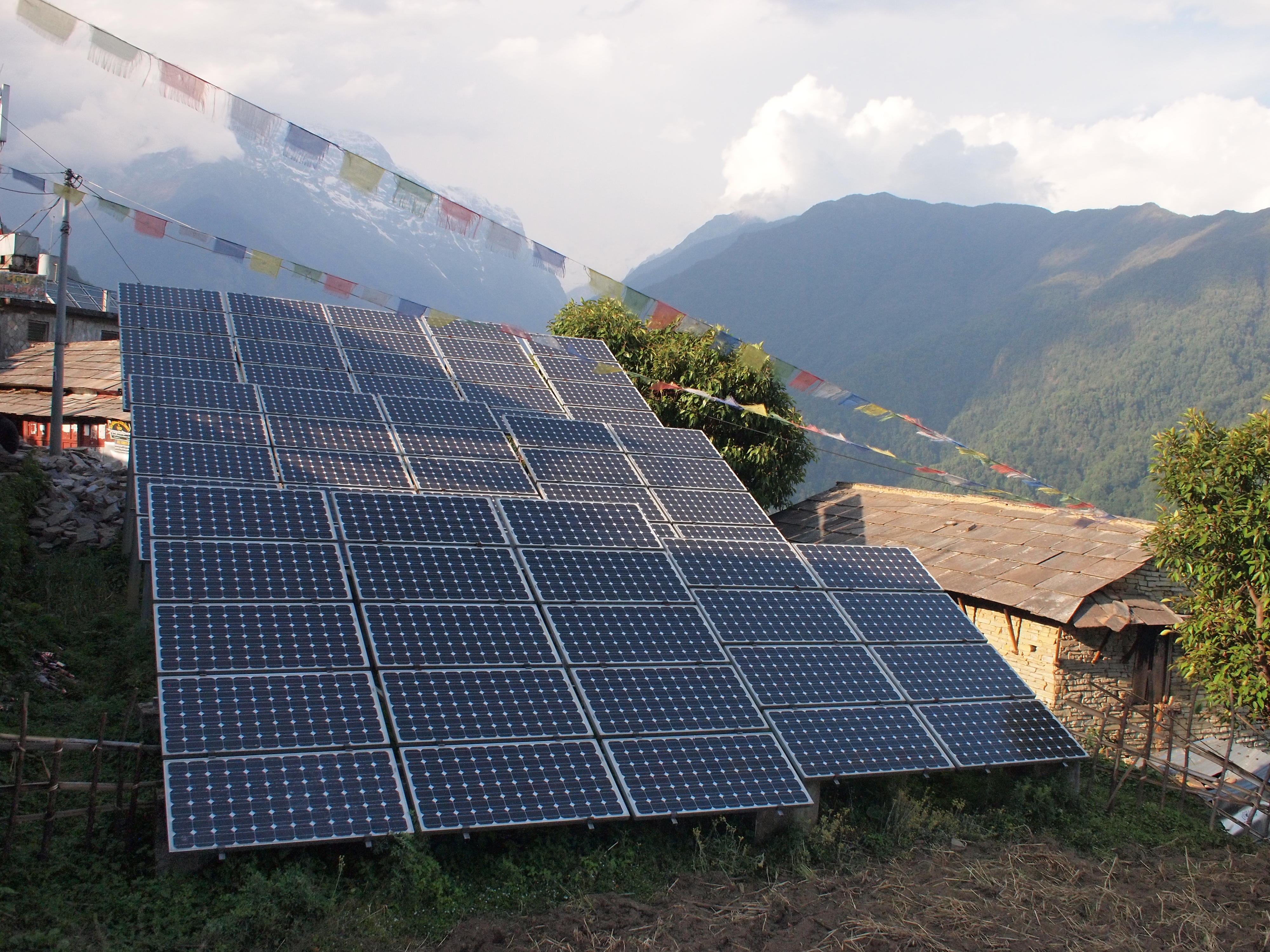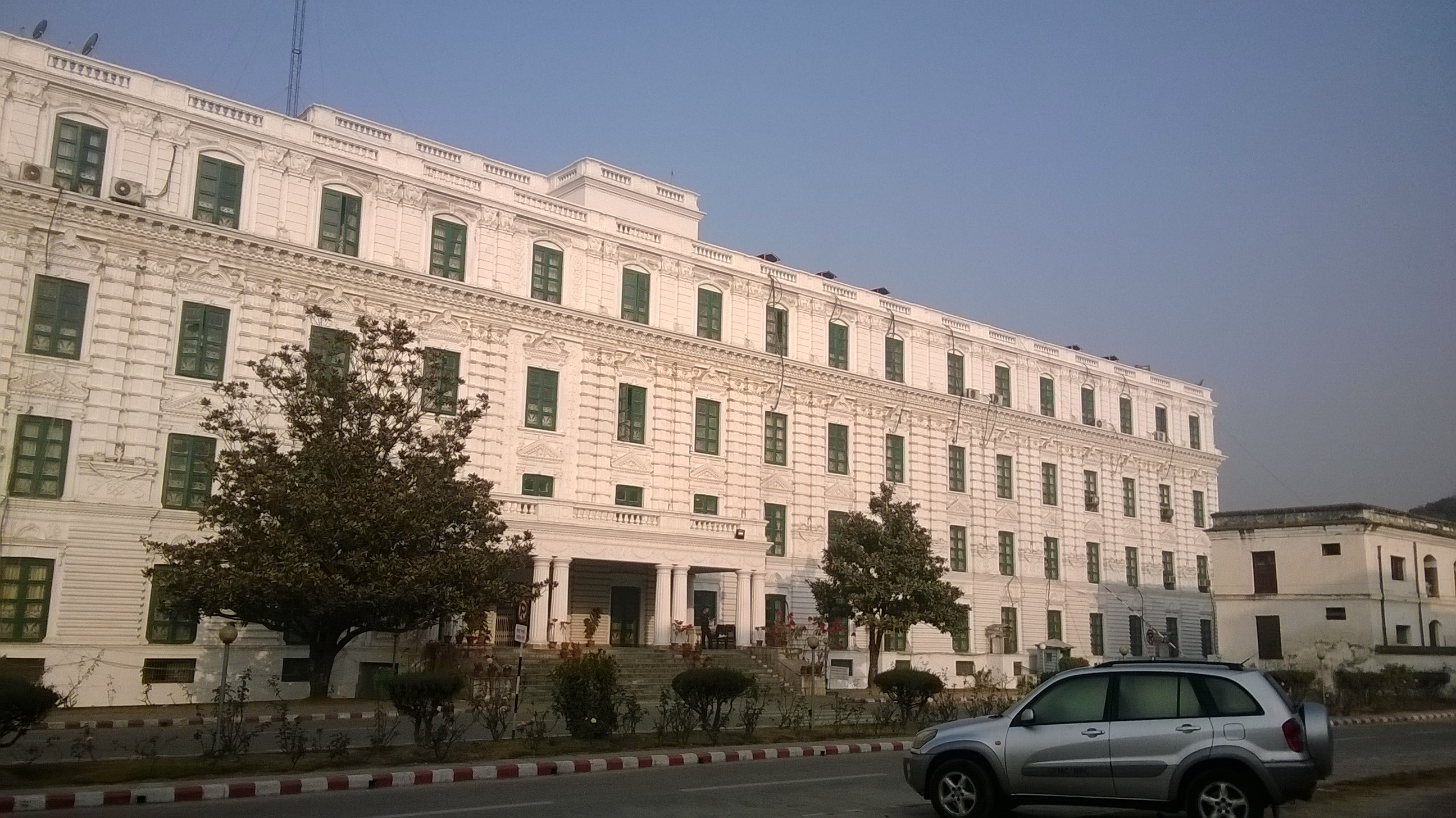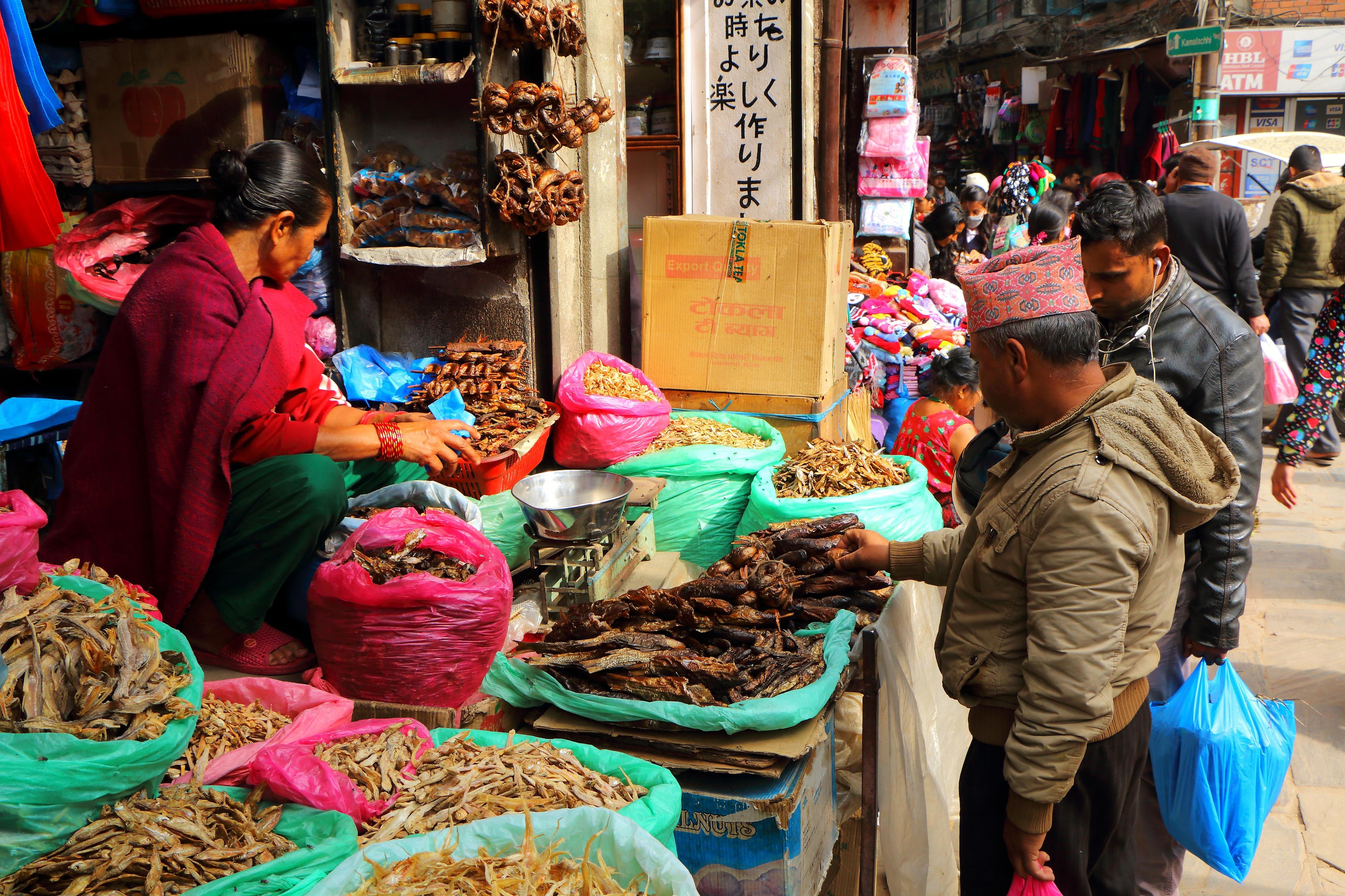View of Kathmandu, the capital of Nepal, during the monsoon season
Copyright© Rüdiger Wenzel, via wikimedia, CC BY-SA 3.0 DE, Bildausschnitt
Nepal
Nepal’s government and society are faced with the challenge of further consolidating democracy and the rule of law, establishing effective federal structures, making economic growth both sustainable and inclusive, and reducing ongoing social and regional inequalities.
At the same time, the country has to cope with the impacts of the COVID-19 pandemic and of Russia’s war of aggression against Ukraine, and adapt to the effects of global warming. According to the Global Climate Risk Index 2021, Nepal is one of the ten countries most severely affected by climate change.
Nepal also still counts as a least developed country (LDC). In the current Human Development Index (HDI), Nepal ranks 145th out of the 193 countries listed. The government has set itself the goal of making Nepal a middle-income country by 2030.
German development cooperation with Nepal
Development cooperation between Germany and Nepal is aligned with the Nepalese government’s development strategy. One particular focus is on overcoming social inequalities and enabling equal participation in political, economic and social life for vulnerable groups, especially women.
In November 2022, the Federal Ministry for Economic Cooperation and Development (BMZ) committed a further 56 million euros in support for its partner country for 2022 and 2023. This comprises 35 million euros in Financial Cooperation funding and 21 million euros in Technical Cooperation funding.
The focus of the bilateral cooperation is on the following core areas:
- Sustainable economic development, training and employment
Area of intervention: private sector and financial sector development - Health, social protection and population policy
Area of intervention: health, pandemics and One Health - Climate and energy, just transition
Area of intervention: renewable energy and energy efficiency
SDG trends for Nepal
- On track or maintaining SDG achievement
- Moderately improving
- Stagnating
- Decreasing
- Trend information unavailable
